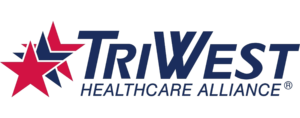Prescription Drug Rehab Center in Texas
What are Prescription Drugs?
Some prescription drugs affect the brain, altering mood, perception, or pain levels. Opioids relieve pain, but they can be highly addictive. Stimulants help with focus but may be misused for energy or performance enhancement. Sedatives calm anxiety but can cause drowsiness and dependence.
Doctors prescribe these medications based on individual needs and circumstances. Following dosage instructions is important for safety. If concerns arise, speaking with a healthcare provider can be helpful.

Is Addiction Impacting Your Life?
Take The First Step To True Healing Today!
How Do Prescription Drugs Affect The Brain and Body?
Opioids attach to brain receptors, blocking pain and creating a sense of relaxation. They can also slow breathing and heart rate. Stimulants increase dopamine, improve focus and energy, and raise heart rate and blood pressure. Sedatives enhance calming chemicals, reducing anxiety but causing drowsiness and slowed reflexes.
Long-term use can change how the brain functions. The body may adjust, necessitating higher doses to achieve the same effect. This can lead to dependence or withdrawal when stopping use.
The body also processes these drugs through the liver and kidneys. Misuse can strain these organs, leading to health issues. When used correctly, prescription drugs help manage conditions. Always follow medical guidance for safe and effective treatment.
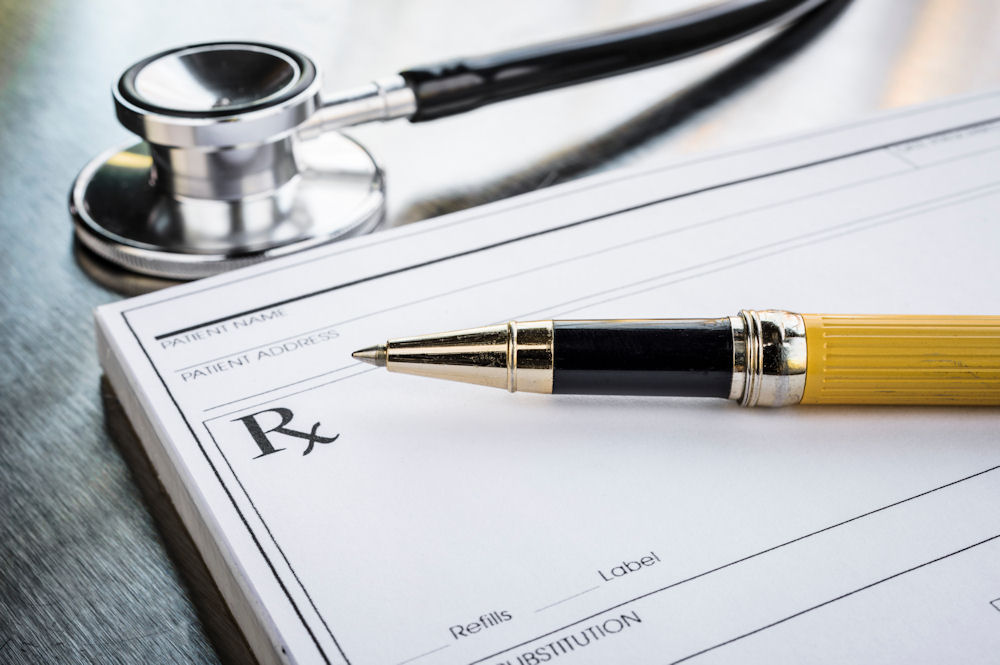
Why Are Prescription Drugs Addictive?
As tolerance builds, higher doses may be required to achieve the same effect. This increases the risk of dependence and withdrawal symptoms when stopping. The body and mind adapt, making quitting difficult without support.
When taken as directed, prescription drugs can be beneficial. If dependence develops, professional guidance can help with safer management and recovery.
Contact Our Admissions Team Today
What Are the Commonly Abused Prescription Drugs?
- Opioids: Medications like oxycodone and hydrocodone are prescribed for pain but can create feelings of euphoria. Misuse increases the risk of dependence and overdose.
- Stimulants: Drugs such as Adderall and Ritalin are used for ADHD but are sometimes abused for energy or focus. High doses can raise heart rate and cause anxiety.
- Sedatives: Benzodiazepines like Xanax and Valium help with anxiety and sleep disorders. Misuse can lead to drowsiness, memory problems, and withdrawal symptoms.
- Muscle Relaxants: Some people misuse medications like Soma for their calming effects, which can lead to drowsiness and dependence.
- Sleep Aids: Drugs such as Ambien are meant for short-term sleep problems but can be habit-forming when misused.
These drugs are safe when used as prescribed, but misuse can lead to health risks. If concerns arise, medical professionals can help.

Testimonials
![]()
![]()
![]()
![]()
![]()
Victoria H
I couldn’t recommend Origins more, I first attended their IOP program, then their residential program in South Padre. I’m writing this today a year and a half sober and going strong. Origins has literally saved my life in more ways than one.
![]()
![]()
![]()
![]()
![]()
Emily W
The clinicians are knowledgeable and skilled in a way that is always helpful and never harmful. This program brought me lasting healing and freedom.
![]()
![]()
![]()
![]()
![]()
Mary L
I cannot say enough about Hannah’s House. I entered broken, tired and far more sick than I realized. I was treated with kindness, love, patience and respect by all. I was so frightened to go but sad to leave, that speaks volumes. Thank you from the bottom of my heart to all who put me back together, I am eternally grateful.
![]()
![]()
![]()
![]()
![]()
Jack W
I struggled with my sobriety for over 5 years, but they were able to help me through the 12 steps of AA. I have been sober ever since my experience here. I’ll be hitting 2 years of sobriety in 22 days, thanks to this treatment center. No matter where you go, it’s all about your level of commitment towards gaining a better life ?
![]()
![]()
![]()
![]()
![]()
Jazmine R
Origins was exactly what I needed. The staff were incredibly knowledgeable, compassionate, and helpful. They come with years of experience and consider each individual they’re helping. If you’re looking for a facility that will truly care as much as you/your parents do, or are desperate for a miracle — I can’t recommend Origins more! ❤️

What Are the Indicators of Prescription Drug Abuse?
- Taking higher doses than prescribed
- Seeking early refills or doctor shopping
- Using someone else’s prescription
- Hiding or lying about medication use
- Withdrawing from social activities
- Neglecting responsibilities at work, school, or home
- Increased secrecy or defensiveness about medication
- Combining medications with alcohol or other substances
- Mood swings, irritability, or unexplained aggression
- Drowsiness, dizziness, or excessive fatigue
- Nausea, vomiting, or constipation
- Slurred speech or slowed reflexes
- Memory problems or confusion
- Rapid heart rate, high blood pressure, or irregular heartbeat
- Anxiety, paranoia, or restlessness
- Insomnia or unusual sleep patterns
- Trouble concentrating or making decisions
What Are the Side Effects of Prescription Drug Addiction?
- Drowsiness: Many prescription drugs, especially opioids and benzodiazepines, can cause drowsiness, impairing alertness and reaction times.
- Confusion: Certain medications may lead to confusion, affecting cognitive functions and decision-making abilities.
- Dizziness: Certain medications can cause dizziness, which increases the risk of falls and accidents.
- Slurred Speech: Certain medications can impair motor skills, resulting in slurred speech.
- Poor Coordination: Medications like benzodiazepines can impair coordination, leading to difficulties in movement and balance.
- Slow Breathing (with opioids or sedatives): Opioids and sedatives can depress the respiratory system, leading to slow or shallow breathing.
- Anxiety or Restlessness: Some individuals may experience increased anxiety or restlessness as a side effect of certain medications.
- Rapid Heart Rate: Certain stimulants can cause an increased heart rate, potentially leading to cardiovascular issues.
- Impaired Judgment: In the short term, prescription drug abuse can impair judgment, leading to accidents, dangerous situations, and increased risk of overdose.
- Dependence and Withdrawal Symptoms: Prolonged use of certain medications can lead to physical dependence, with withdrawal symptoms upon cessation.
- Altered Brain Chemistry and Dopamine Release: Chronic use can disrupt normal brain chemistry, affecting mood and behavior.
- Increased Tolerance, Requiring Higher Doses: Over time, the body may require higher doses to achieve the same effect, increasing the risk of overdose.
- Liver, Kidney, and Heart Damage: Long-term abuse can lead to damage to vital organs, including the liver, kidneys, and heart.
- Cognitive Decline or Memory Issues: Chronic use can impair cognitive functions, leading to memory issues and a decline in mental clarity.
- Anxiety, Depression, or Other Mental Health Struggles: Long-term use can exacerbate or contribute to mental health disorders.
These long-term effects can significantly disrupt a person’s life. Seeking professional help is essential for managing addiction and beginning recovery.


What Prescription Drug Treatments Are Available?
Detox is often the first step in recovery. It involves safely removing prescription drugs from the body under medical supervision. This helps manage withdrawal symptoms and prepares individuals for further treatment.
- Inpatient treatment offers 24/7 care in a controlled environment, ideal for those with severe addiction or co-occurring disorders. It provides structured support and reduces access to triggers.
- Outpatient treatment allows individuals to live at home while attending therapy sessions and support groups. It offers flexibility and is suitable for those with less severe addiction or those transitioning from inpatient care.
Therapy is a key part of recovery. It includes individual counseling, group therapy, and family therapy to address the emotional and psychological aspects of addiction. Cognitive-behavioral therapy (CBT) is commonly used to help change negative thought patterns and behaviors.
Nationally Recognized & Accredited
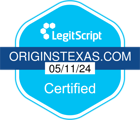

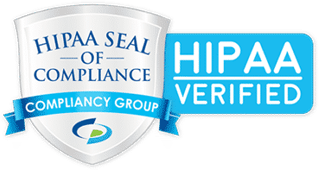
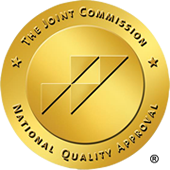
Help is Available at Origins Texas Recovery’s Prescription Drug Rehab
We offer detox services to safely manage withdrawal symptoms and help individuals transition into recovery. Our inpatient and outpatient programs cater to different needs, allowing flexibility while offering structured treatment.
Therapy plays a vital role in recovery at Origin Texas Recovery. Our counselors use evidence-based therapies, including cognitive-behavioral therapy, to address the underlying causes of addiction. We also offer family therapy to support loved ones in the recovery process. Reach out to us today to discover more about our programs and how we can assist you or your loved one.








